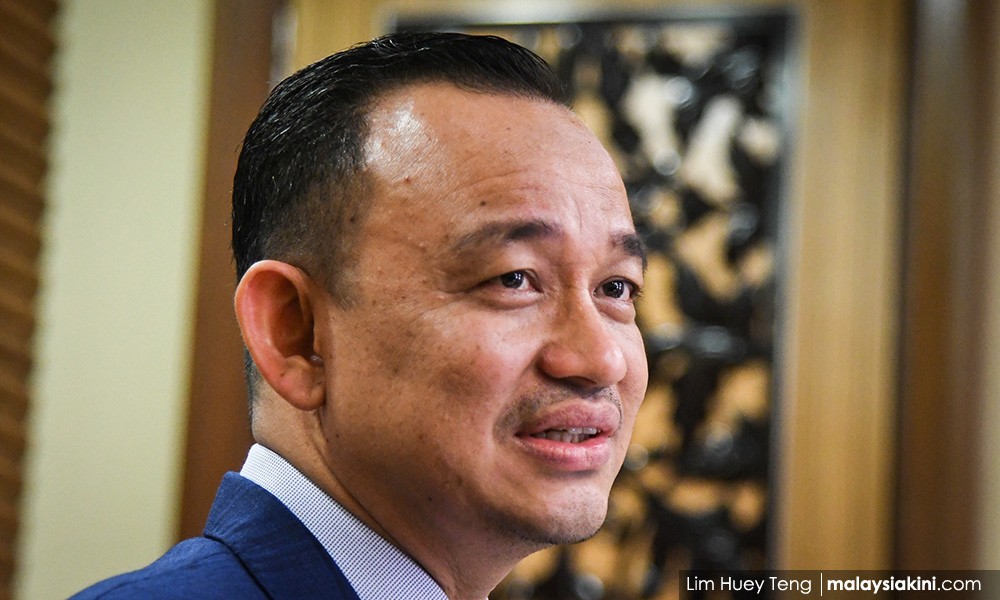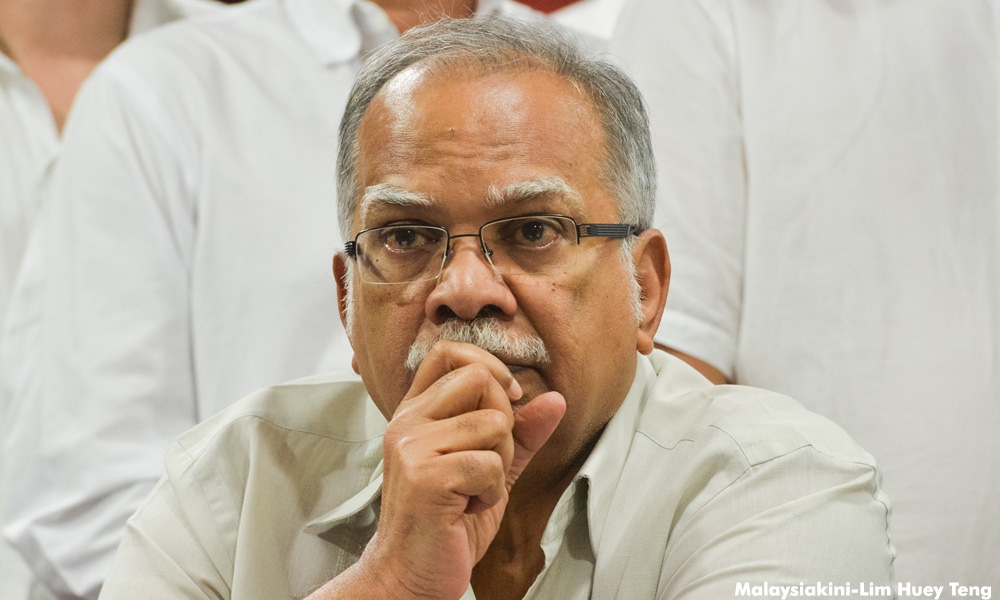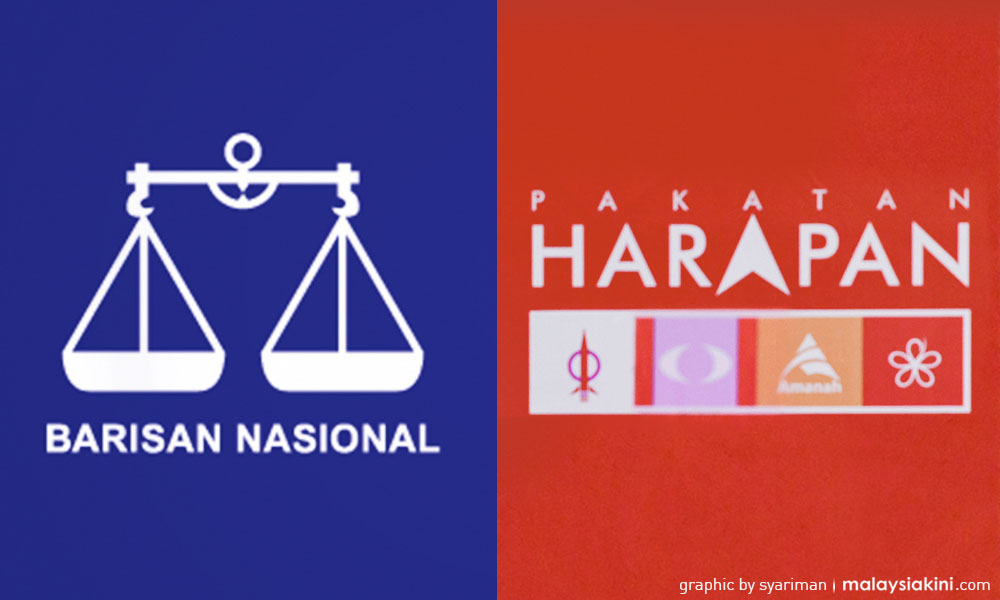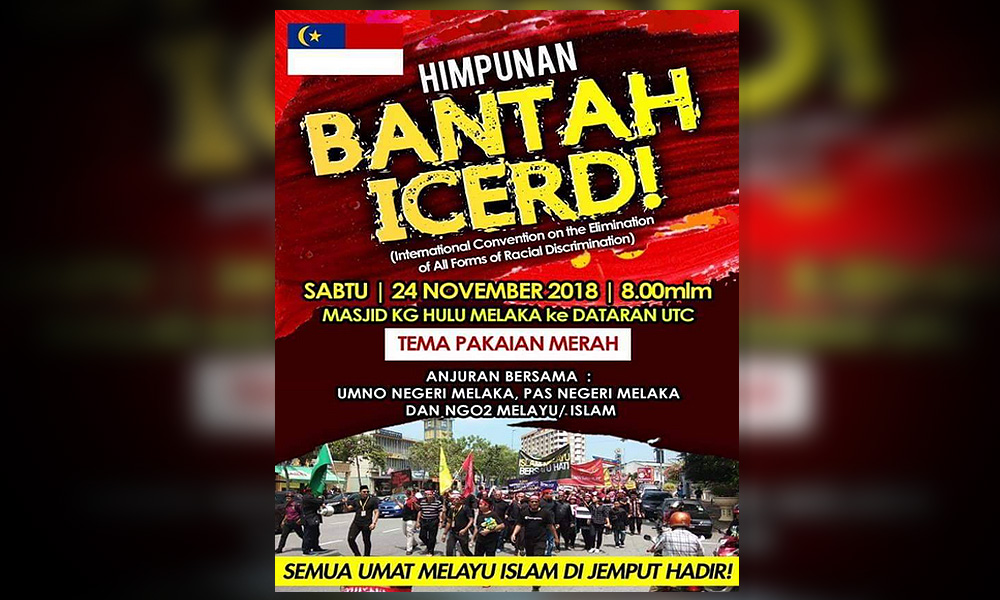From Malaysiakini:
Maszlee a convenient whipping boy for Harapan, Umno narratives
OPINION | S THAYAPARAN
Published: | Modified: 
“And how easy it is to recognise the revenant shapes that the old unchanging enemies—racism, leader worship, superstition—assume when they reappear amongst us (often bodyguarded by their new apologists).”― Christopher Hitchens, Arguably: Selected Essays
COMMENT | The recent comment by Education Minister Maszlee Malik linking the matriculation quota system to job discrimination in the private sector is not only an Umno narrative but also a Pakatan Harapan narrative. Whenever issues like these crop up, Harapan partisans are quick to pounce on personalities instead of questioning the underlying policies of Harapan.
It has been one year of Harapan rule and so far what Harapan has done in terms of policy is to continue the efforts of the previous government in maintaining racial and religious hegemony. Maszlee may be a convenient whipping boy but the reality is that it is Harapan which is aping Umno’s racial and religious narratives.
While P Ramasamy is correct to point out that Maszlee is behaving like an Umno clone, what he fails to highlight is that the entire Harapan government is behaving like the BN regime. This Malay/Chinese narrative is still defined along the same old lines instead of the promised egalitarian policies that Harapan campaigned on.
Icerd, the Rome Statute, the backtracking on various social and educational initiatives, the funding of racial and religious propaganda organs, the polemics of Harapan Malay politicians and the silence of their non-Malay counterparts point to a neo-BN reality instead of a “new Malaysia”.

Systemic discrimination in the public and the private sectors is not mutually exclusive. Talking about the discrimination of the quota system and the discrimination in the private sector either overt, or crypto, is not something that can and should be had separately. It is part of the grander, systemic dysfunction brought upon by years of governmental and commercial manipulation. I may not believe in that mythical social contract, but an argument could be made that the social contract of discrimination and racism is a social contract between political and commercial interests.
When Ramasamy asks what is the difference between Maszlee and Umno politicians, what he really should be asking is what is the difference between the racial and religious policies of Umno and Harapan? Is there a difference when it comes to tackling discrimination in the public and private sectors? Ramasamy's question is only credible if there are differences between the two and if there is no difference, then singling out Maszlee for towing familiar Malay narratives is unfair.
When Ramasamy makes the point of the realisation that “some of our ministers, like Maszlee, are no different from the BN era politicians who used race and religion to ensure their political survival", this is unintentionally funny. Why? Because, if anything, non-Malay political operatives have been scrambling to not spook the Malays and are in a state of agitation because their base is wondering when this “new Malaysia” deal will materialise. DAP, for instance, having a closed-door debate is the very definition of not spooking the Malays.

Racial and religious issues are the bread and butter of Malaysian politics. How could it not be? When the religion of the state dominates and democratic norms subverted and we have racial policies favouring the majority community, everything becomes an issue of race and religion. When non-Malay political operatives defend their religious rights or defend the rights as non-Malays, they are using race and religion as political tools because they are the most effective tools when it comes to dismantling hegemonic power structures and policies.
To argue otherwise, to imply that only Umno/BN politicians do this, is merely another red herring that Harapan seems to have an endless supply of. Honestly, when you have a race-based party like Bersatu in the coalition and the pre-election rhetoric of the then Harapan opposition of Mahathir being needed to secure the rural Malay vote, what did people think it meant in terms of Harapan’s policy when it came to racial and religious issues?
And I’m for non-Malay political operatives speaking up for their communities. When non-Malay political operatives like Ramasamy, for instance, challenges Malay orthodoxy when it comes to constitutionally enshrined rights of non-Malays, this is a good thing. It is pointless drawing false equivalencies between non-Malays speaking up for their rights and Malays defending their privileges and it is also pointless claiming that race and religion are not the bread and butter issues of all politicians.
Unless the system changes we have to speak up when racial and religious supremacy rears its ugly head and we have to think along racial and religious lines because not to do so would lead us to a theocratic state. We already live in an ethno-supremacist state.

Of course, there is a way to weaken the racial and religious narratives of this country and differentiating the Harapan regime from the previous Umno regime. This entails not only introducing anti-discrimination laws which apply to the public and private sector but also dismantling institutions, including political parties, which are race-based.
But is this really something the Harapan government is interested in? Ramasamy points to the discrimination faced by the Indians in the private sector and the monopolisation of bumiputera in the public sector and asks what the government is doing about that. This is a good question but why single out Maszlee? Why not single out the whole government bureaucracy which seems to be there not to challenge mainstream Malay political orthodoxy but to reinforce it.
See, this is why the Harapan regime abandoning something like Icerd was the height of mendacity. Icerd provided the framework when it came to formulating policy for the public and private sectors. When I wrote this, “The central theme of Icerd is eliminating all forms of racism and discrimination and while the legalese of this convention is contextualised in support of certain race-based agendas, at the heart of it, what its proponents hoped Icerd would do is put us on the road towards reforming a system which is mired in the kind of racism and bigotry detrimental to social and economic cohesion.” It was written to remind Malaysians that there is politics beyond race and religion. We must take the first tentative steps.
I honestly think that Ramasamy is slowly becoming the conscience of Harapan but I think he should stop finding convenient whipping boys and hold Harapan directly responsible for abandoning the fight for a “new Malaysia”.
Priority Number 1 for Pakatan Harapan is Economic growth and opportunities.
ReplyDeleteAs Bill Clinton famously said, "It's the Economy, Stupid!"
The Race and Religion issues can be more amicably resolved when the children's hungry stomachs get filled.
But not before LGE gets his swimming pool and "get out of jail" card.
DeleteBodoh punya Cina. The real Pakatan agenda is LGE getting a swimming pool without going to jail. If everything else needs to stay the same for that to happen - then so be it.
ReplyDeleteGet a clue Cinatoks.
Instead of throwing brickbats and shooting at one's own foot in PH at the slow pace or inaction towards Reform for a New Malaysia, isn't it better to acknowledge that the current PH Govt. setup just does not have the leadership currently necessary to carry out the Reforms because TDM is helming the PH Govt. with several other PPBM warlords helming certain Ministries and State Govts.?
ReplyDeleteEven if TDM wants to undertake the Reforms expected by PH, he can't because of his own party PPBM ideology and his own political agenda which is not in total agreement with the Reform agenda of other PH component parties.
TDM's main agenda was to kick out kleptocrat Ahjibkor and when he couldn't from within UMNO, he set up PPBM and used other PH component parties to achieve his aim via GE 14. His deep animosity and hatred of Ahjibkor due to his own mistreatments at the hands of Ahjibkor was more than just the ideals of PH parties saving the country from the hands of a Kleptocrat and instituting reforms for a New Malaysia.
TDM would have gone into GE 14 thinking if UMNO and BN loses enough seats during GE14 which he is also not expecting to be won, the pressure from within UMNO warlords fear of losing the next GE would be enough to get rid of Ahjibkor based on the a disappointing GE 14 results just like what happened to DSAB in the aftermath of GE 2008 elections where he supported even the opposition parties while in UMNO.
The only other party which has the capability to provide the necessary leadership to quicken the pace to enforce the Reforms agenda of a New Malaysia is left with DSAI and his party PKR with the support and full backing of DAP, Amanah and Warisan.
DSAI at least should be in the Cabinet as Deputy PM tasked with doing the Reform agenda of PH instead of TDM doing it at his own pace wishy washy style and until his time runs out. TDM tried to beef up his party PPBM to ensure his legacy in PH continues and knows his party PPBM could not continue to hold the reins of power in PH once he is gone.
It is actually the other leaders of PH parties which failed to show leadership and courage in forcing TDM to accede to the Reform agenda for a New Malaysia.
Do they need to wait until TDM dies or if DSAI become PM or until after the next GE?
When one sees Reforms for a New Malaysia needed which are not bonded by restrictions of Constitution, financial or even a collapse of a PH Govt. not carried out yet, it clearly shows the lack of will in leadership to enforce it as a PH Govt. agenda after saving the country from a potential economic collapse under BN ruled by Kleptocrats, racists, religious bigots and greedy immoral supporters.